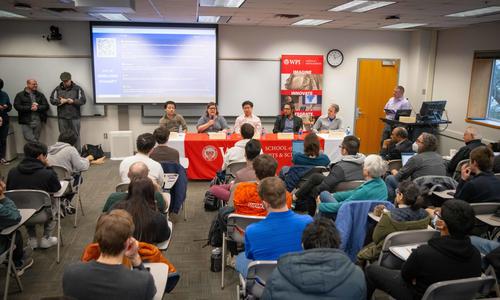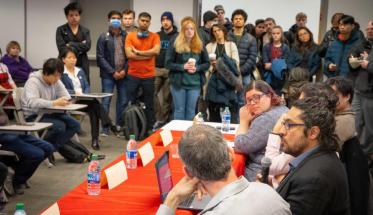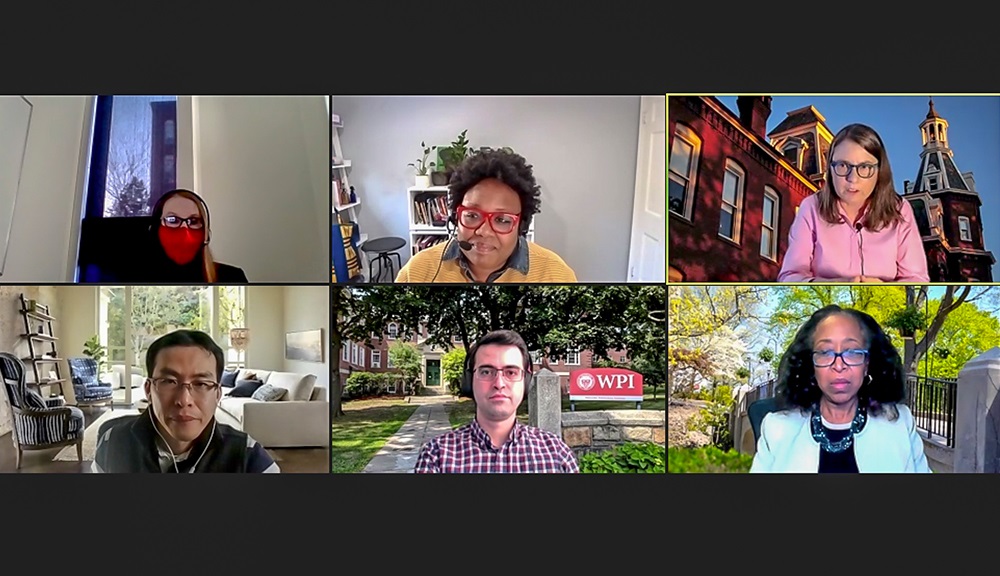In recent weeks, tech giants like Microsoft and Google have scrambled to get their predictive text models to market after ChatGPT, a large language artificial intelligence platform, shocked the world with its eerily lifelike but not-quite-perfect ability to carry on conversations and pump out essays, computer code, and blurbs of text about anything and everything users ask for. Launched in November—before the world was really ready for it, some might argue—ChatGPT quickly amassed more than 100 million users and sparked a worldwide debate about the increasingly blurred lines between AI and human intelligence.
Could the technology be a tool for students who could use it to quickly build an outline for a project? Could it push professors to shift their focus away from written assignments and toward project work and research? Is ChatGPT just a computer that guesses the next word, or could it be used to solidify an autocratic regime’s grip on information?

Experts in computer science, writing, economics, and interactive media at WPI have been tackling those questions head-on and gathered February 21 for the latest Critical Conversations forum to explore the possibilities and potential pitfalls of the technology.
The panel, moderated by Craig Shue, computer science department head, and hosted by Jean King, WPI Peterson Family Dean in the School of Arts and Sciences and a neuroscientist, used their expertise to help guide the audience through the potential impacts of this new technology, which, as one professor put it, is right up there with electricity and the steam engine in terms of how it could change our lives.
Xiaozhong Liu, Jacob R. Whitehill and Gillian M. Smith, associate professors of computer science; Kenny Ching, assistant professor at The Business School; and Yunus D. Telliel, assistant professor of anthropology and rhetoric, shared their views on a recent morning with a standing-room-only audience at Fuller Labs about the state of AI language platforms.
And the one clear answer, it seems, is that there is no clear answer about how to deal with the ethical, practical, and sociopolitical concerns the technology has thrust into to the spotlight.
Watch the video:





